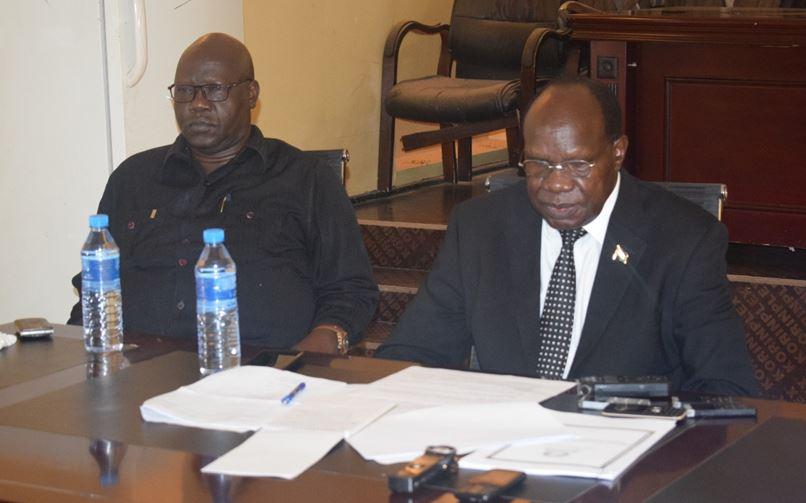Africa-Press – South-Sudan. South Sudanese traders have tabled the reasons compelling consumers to dig deeper into their pockets for survival, even when the dollar rate has significantly remained stable over the past four months.
In a meeting with members of Parliament representing South Sudan in the East African Legislative Assembly (EALA) on Wednesday, the traders said they were facing multiple taxes on transit between Mombasa and Juba.
They lamented that such taxes not only violate the custom union protocol but also affected the local consumers who pay more than double for basic commodities. They demanded an immediate solution to make EAC attractive.
“We are demanding solutions to the challenges we are facing right from Mombasa up to Juba,” Laku Lukakak, Acting Chairperson of the South Sudan Chamber of Commerce, Industry and Agriculture, said.
“In Mombasa, there are a lot of challenges we are facing. Today, the dollar has no problems because it has stabilised. The problem now is on the road between Mombasa and Bibiya, “he added.
Mr. Lukak added, “If there is unity among the East African Community, why are [we] subjected to all these challenges?” Multiple taxations creates difficulties in collecting money from South Sudanese traders who bring food into the country.”
EAC model unrewarding
The prominent businessman also argued that when South Sudan decided to join the bloc in 2016, the main objective was to unify custom unions to facilitate the free movement of goods and services across member states, which the country has not realised till date.
He said though the visa has been waived, the neighbouring EAC countries have been imposing compulsory and expensive COVID-19 tests at $50 to substitute for the visa waiver fee.
“We are incurring a lot of losses on the road. If the East Africa Community benefits South Sudan, well, we do not have any problems because what we want is the benefit of joining the East Africa Community. “
“So if member states of the East African Community have the unity that we should work together, those things should be abolished so that goods become cheaper in South Sudan,” Mr. Lukak said.
A businessman and member of the South Sudan Chamber of Commerce, Industry, and Agriculture, Mzee Ayuel Agot, said the South Sudanese could suspend business with other EAC member states if the challenges persist.
Mr. Ayuel said they could not continue trading with their brothers at the expense of the vulnerable South Sudanese, who do not afford a single meal a day due to high prices compelled by multiple taxations.
“Now instead of the East African Community helping us to improve the system, they are now grabbing the little opportunity there and using it for themselves.” In which sense? What are we getting from the East African Community? For me, that is no integration, “said Mr. Ayuel.
However, Thomas Dut, MP representing South Sudan to the EAC, promised to present the concerns of the traders not only to the EALA but also to the government of South Sudan to provide urgent solutions.
“The business between member states in that regard has elements of facilitation.” We have free movement of goods and services, free movement of labour, and free movement of capital across the member states,’ said Mr. Dut.
“We gather a lot of information and we expect members of the East African Parliament representing the Republic of South Sudan to go back with this information, debate them, and then generate recommendations to our council of ministers, which will be in a position to share them with the summit composed of heads of states and find a solution,” Mr. Dut said.
The seven members of the bloc – Uganda, Kenya, Rwanda, Tanzania, Burundi, South Sudan, and, most recently, the Democratic Republic of the Congo – want to form a political federation to strengthen economic, political, social, and cultural integration among member countries. Since South Sudan joined the bloc in 2016, it has so far enjoyed the free movement of people through visa waivers.
For More News And Analysis About South-Sudan Follow Africa-Press






